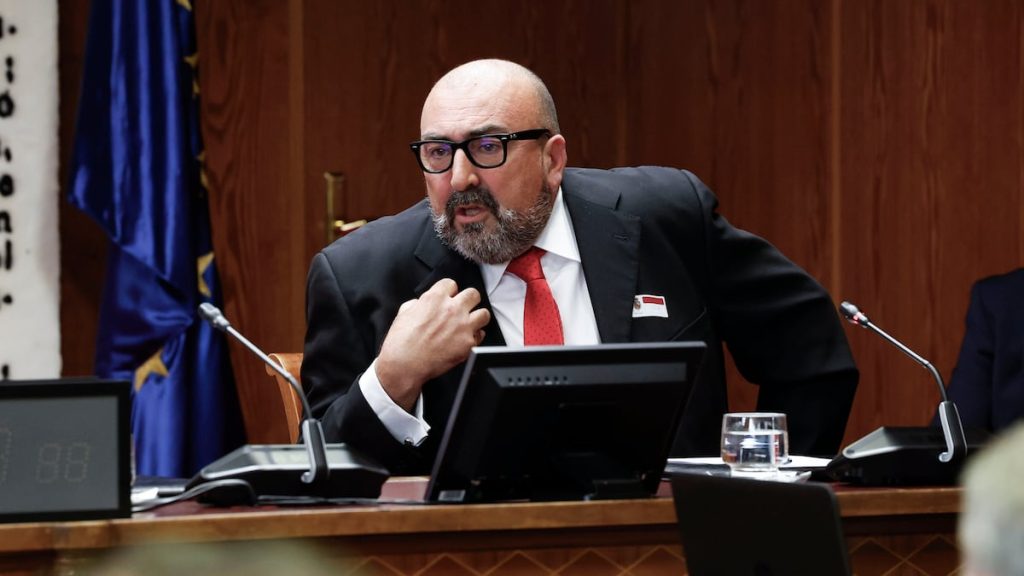The Ministry of Transport doubled its purchase of masks in just 38 minutes in an order dated March 20, 2020, according to the audit published on Friday by the Ministry in response to the Koldo case. The report indicates that the department, then led by José Luis Ábalos, changed an order for the purchase of four million masks to one that increased it to eight million in that time period. According to the document, a total of 20 million euros were paid to the company Soluciones de Gestión, at the center of the scandal because its managers allegedly paid commissions to Koldo García, a former advisor to Ábalos. The justification given for expanding the order was that “the company offered eight million or nothing”.
The current Minister of Transport, Óscar Puente, who has dismissed two high-ranking officials from Adif, explained on Friday that the audit found several “irregularities”. The most serious one is graphically detailed in the report: “On March 20, 2020, at 7:55pm, a signed order from the Minister regulating the acquisition and distribution of a maximum of four million masks was sent from the Minister’s Cabinet to the Undersecretary”. The report continues: “However, on the same day, at 8:33 pm, a new signed order from the Minister was sent from the same mailbox, which annulled the previous one, and regulated the acquisition and distribution of a maximum of 8 million masks by the Ministry”.
The audit also highlights a “lack of initial control” of masks in the ministry during the peak of the covid-19 pandemic. It specifically mentions the role played by the then minister’s advisor, who gave direct instructions to the distribution company regarding the destination of the first masks that arrived at Barajas airport. The document points out that these instructions should have been reserved for the contracting authority. In fact, the advisor brought masks (25,000) to the ministry, stored and later removed them, without any record beyond the informal knowledge of the Chief Office and the then Director General of Organization and Inspection.
Puertos del Estado was authorized to acquire those eight million masks in the early days of the state of alarm declared due to the pandemic, activated on March 14, 2020. The batch was purchased through the ministerial order signed by Ábalos on March 20, and under the lifting of most of the filters governing public procurement due to an emergency situation. The report indicates that the offer from the awarded company was accepted by the contracting authority without any clear motivation other than its origin from the Ministry (apparently, from the Minister’s Cabinet). It also highlights that Soluciones de Gestión was not the highest-rated company in the process, yet it was selected as the awardee.
The events described in the audit reveal a concerning lack of oversight and potential misuse of public funds in the Ministry of Transport during the early stages of the covid-19 pandemic. The rapid increase in the purchase of masks, the involvement of external actors in decision-making processes, and the selection of a less qualified company as the supplier raise questions about transparency and accountability in government procurement. This case underscores the importance of strong internal controls and adherence to procurement regulations to prevent misconduct and ensure the efficient and ethical use of public resources.


